Arno Oehri trained as a graphic designer and has been a freelance multimedia artist, filmmaker and project manager since 1986. He also has an additional qualification in music therapy and has been EEA Grants Coordinator in the field of culture for Liechtenstein since 2018. His speciality is interdisciplinary, space-, site- and situation-specific work as an artist, designer and director and the associated tasks as an initiator and project manager. Otherwise he reads a lot, listens to music and likes to walk through the natural environment. Arno Oehri lives in Ruggell, Liechtenstein. He is married, has a son and is 59 years old.
Where and how did you grow up?
I grew up as the third of five siblings in Ruggell, Liechtenstein. A very normal, typical Liechtenstein family of the 60s and 70s.
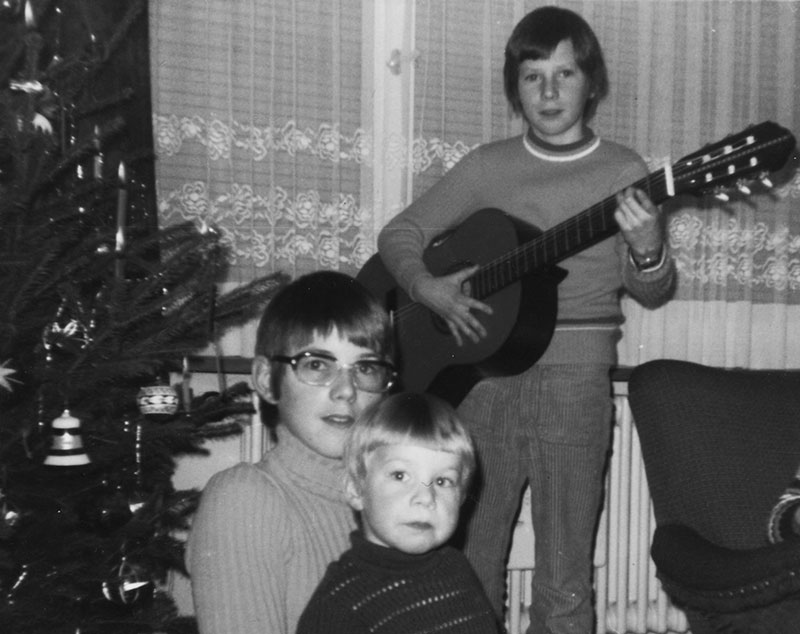
Could you describe your professional background?
It was clear to me early on that I wanted to do something ‘artistic’. School was more of an abomination to me than a joy, narrow and small-minded in my perception, as was the country I lived in and the Catholic social climate in which I grew up. We are talking about the 60s and especially the 70s. My motto was: break out, free myself. So I left grammar school and went to art school in St.Gallen, where I was allowed to attend the art foundation course. I did an apprenticeship as a graphic designer to have a bread-and-butter job. During this time, at the beginning of the 1980s, I had already had my first painting and drawing exhibitions and my big goal was to be able to live and work as a freelance artist. In 1986 I left my job behind and since then I have been living as a freelance artist. My second big driving force was the hunger for the then still big, wide world. In 1986/87 as a young man, I went on a cultural trip to Latin America for more than a year, I lived in New York City for almost two years in 1991/92 and, especially in the years before I started a family, I was repeatedly for longer periods in the most diverse countries, whether in Italy, the USA or Russia etc., almost always in the context of my artistic work. I went wherever my projects took me.
In the late 80s, I became interested in performance art and with performances and art happenings, various media became part of my artistic practice. Video and music above all and I began to look more and more for interdisciplinary approaches in art alongside painting. It has always appealed to me to move on the fringes of the artistic disciplines –driven also by a strong urge for freedom. I said to myself, just because I haven’t studied it, that doesn’t mean I can’t try it out. And so in the 90s I moved via video art into documentary filmmaking and later from regional themes to international productions such as the portraits of musicians like the Argentinian guitarist, singer and composer Eduardo Falú (2009) or the American jazz guitarist and composer John Abercrombie (2017).
At the end of the 1990s I decided to put my rather nomadic life on hold in favour of a greater physical presence here in Liechtenstein. The artistic projects were getting bigger and more long-term and the need arose to have a solid, physical base for them. So around the turn of the millennium I decided to build my own live and work space. Of course this was only possible thanks to the fortunate circumstance that I could inherit a plot of land from my parents.
In 2002 at the age of 40, late but nevertheless, I became the father of a son, which once again brought about a completely new life situation for me. The live and work space also turned into a family home.
Performance art came back into my life through music. In 2006 I founded the trio Klanglabor together with my partner and now wife Denise Kronabitter and with Marco Sele from Schaan. Although it is essentially a music band, its artistic work is closely related to my interdisciplinary orientation. If I hadn’t had these two people in my close environment, I would hardly have ended up in the situation of standing on various stages as a ‘musician’, so to speak.
The latest addition to my artistic output was the realisation of a feature film in 2019, and a new, comparable project is currently in the pipeline. However, the current Covid-19 pandemic is not exactly making it easy to move forward with such a project.
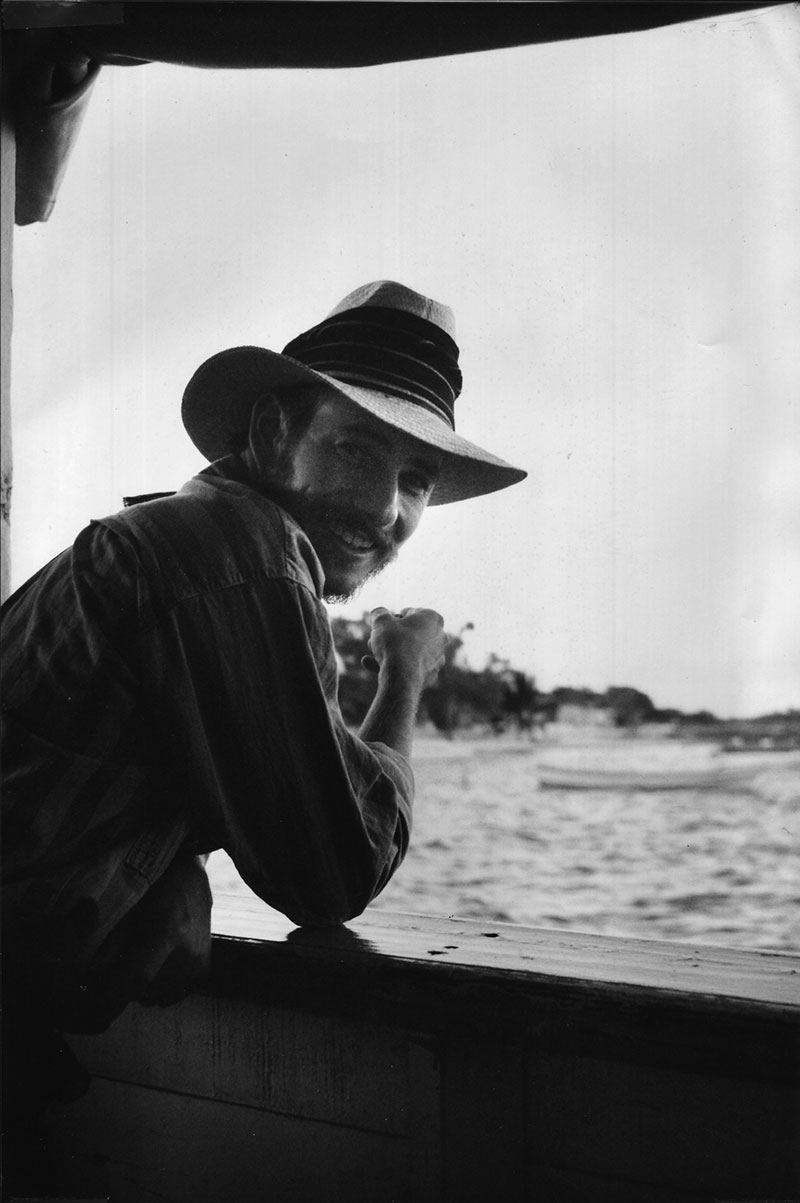
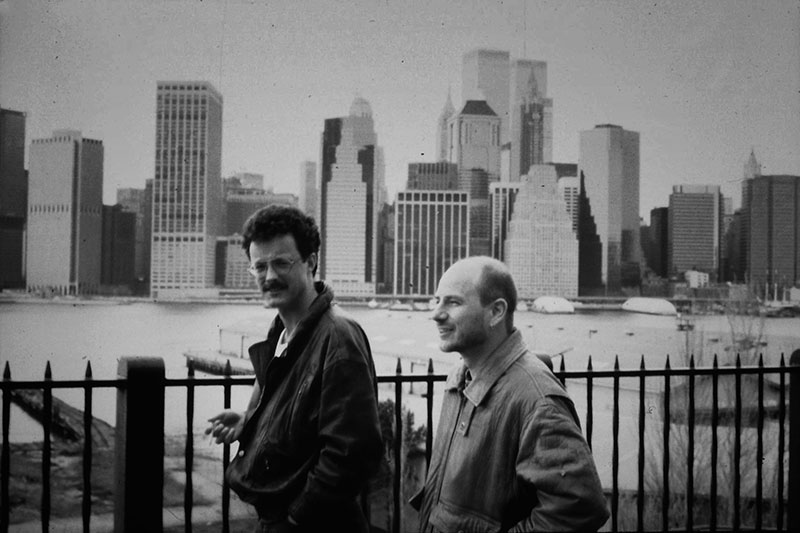
Were there certain events or stations that were formative for your career?
I use the word ‘musician’ in my career in inverted commas because I am not a trained musician, but have entered the field from a totally different angle. But I also didn’t ‘learn’ or ‘study’ filmmaking and not even painting. In other words my entire career has been shaped by the fact that, due to my very varied interests, I have had and probably still have the ‘cheek’ to move into professional fields for which I have no actual training. In my understanding however, it is not necessarily the education that legitimises a profession, but the motivation and passion necessary for it – especially in the artistic professions. If you are interested enough in something you will find your way, be it through self-study, further education or other means. It is only important to carefully sense and question what you can and cannot do.
Were there certain people who were formative for your career?
Yes. I think you always meet people who shape you. Maybe I shouldn’t say ‘shape’ but rather ‘inspire’. I have been lucky enough to meet many people who have inspired me. A list of names would probably be very long.
Has your environment supported you in your career?
When I did my apprenticeship at the beginning of the 80s, even a graphic designer was not yet really considered a proper profession. I received support from my environment in that they let me do it in the end. Probably because it was very clear that it wouldn’t do any good to resist. But I grew up in an absolutely non-artistic environment. There is no appreciation for something that doesn’t bring in money. I had to create my artistic environment completely on my own. And Liechtenstein was anything but a fertile breeding ground for artistic developments in the 60s and 70s.
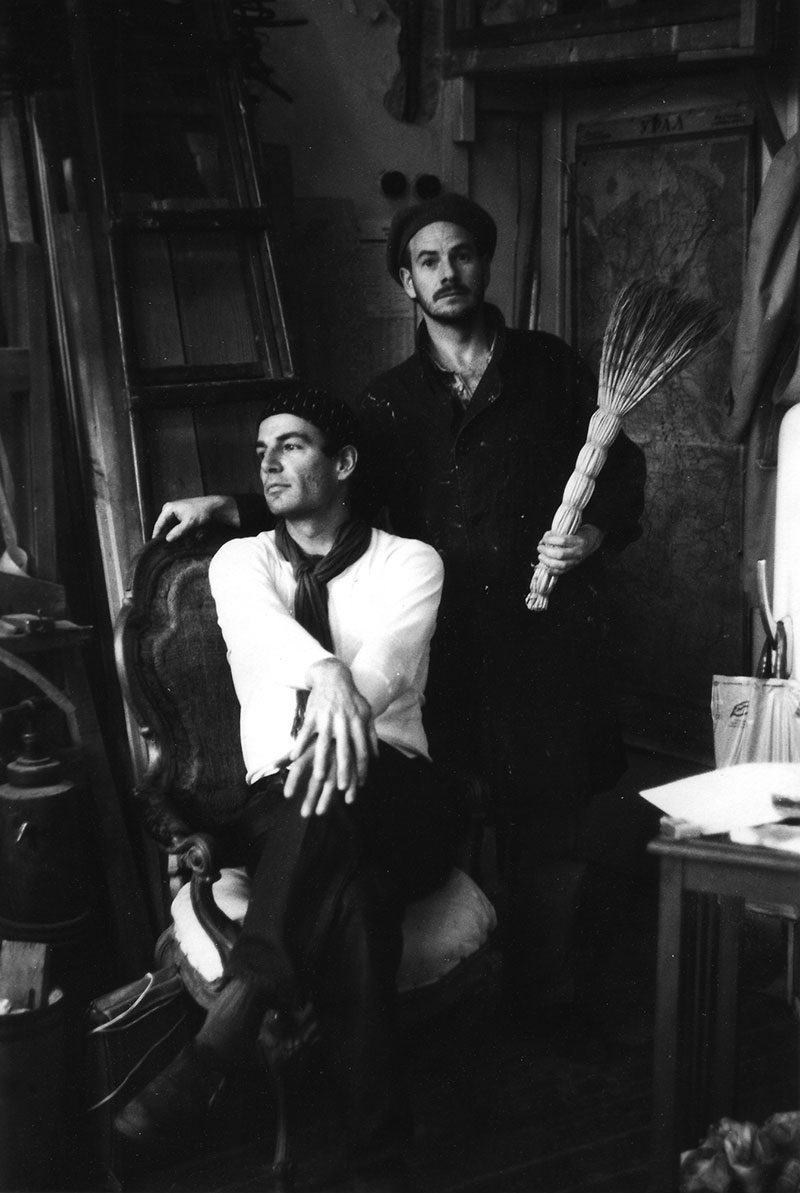
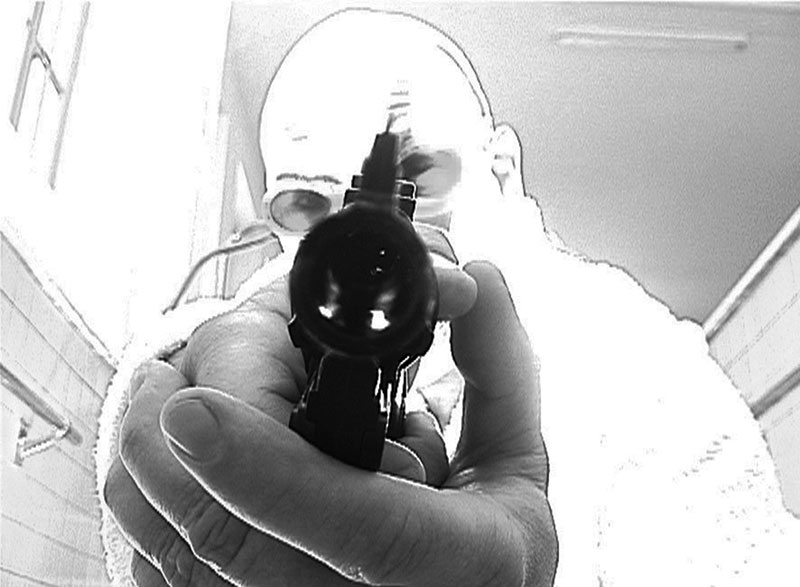
What are your current activities?
I am active in all the aforementioned or related artistic disciplines. In the last few years there has perhaps been a greater focus on filmmaking and musical performances. In addition I currently (still) hold the position of EEA Grant Coordinator in the field of culture on behalf of the Ministry of Culture (20%), I am active in cultural journalism, also in cultural politics, and I may be booked for workshops and various creative projects.
Does what you are currently doing fulfil you?
Yes very much, otherwise I wouldn’t do it to myself, because the great, free artistic life of course has also a downside.
Do you think that you yourself have an influence on whether your activities are fulfilling?
Here in Central Europe, we live in circumstances that give us a certain amount of leeway to influence our own activities – and thus we also have an influence on how fulfilling these activities are. My strategy is to try to be as authentic as possible. To do that, you have to be willing to look deep inside yourself and question yourself – again and again.
It is more difficult with recognition, with appreciation from the outside. For decades now I have been hearing time and again that we need to ‘rethink values’. But Mr. and Mrs. Liechtensteiner unfortunately find it difficult to recognise a different standard of values than a purely material one… Of course this does not only apply to Liechtenstein, but it is pretty explicit here. Ultimately however, the struggle for social and political recognition for the arts is an eternal theme. That’s why we also founded IG Kunst und Kultur in 2020. We want to try to give art and culture a lobby and raise its status at least a little.
To return to the question: Fulfilment arises when an activity is meaningful to you. But one is not alone. As social beings, humans strive to be able to act in a meaningful way in a wider social system. In this respect the arts have to struggle with greater resistance. You just have to put up with that. It’s part of the job description, so to speak.
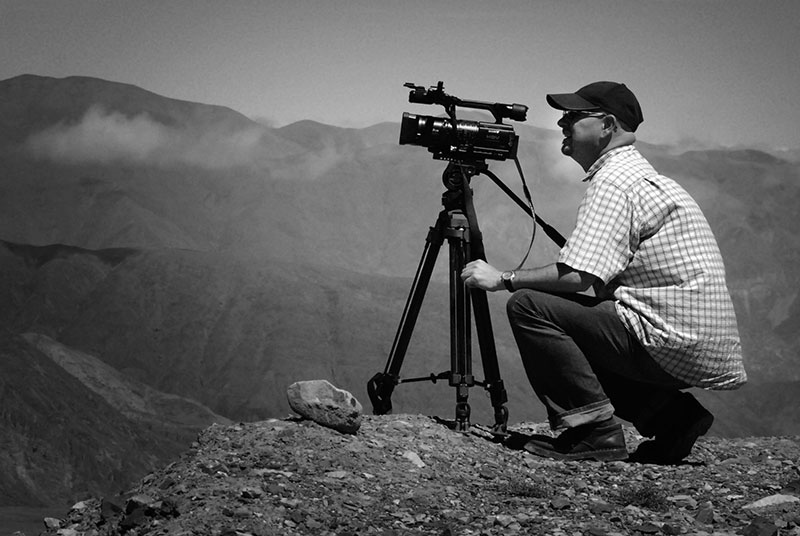
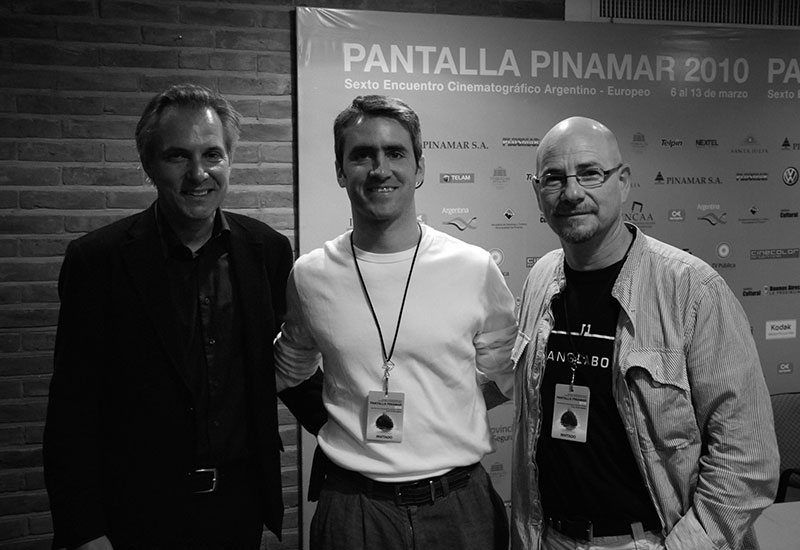
What or who inspires you in everyday life?
As I have already looked at the upcoming questions, I would like to refer to the ‘magic moments’, because I have the feeling that it is precisely these magic moments that inspire me again and again.
What or who gives you strength and energy in everyday life?
Here too: the magic moments. And, of course, my close relatives, my family, my friends. Also: good food, good wine, good conversations and encounters. Long walks in nature. A crackling fire and a good book. And always the arts in all their wonderful forms – and the prospect of new experiences while travelling.
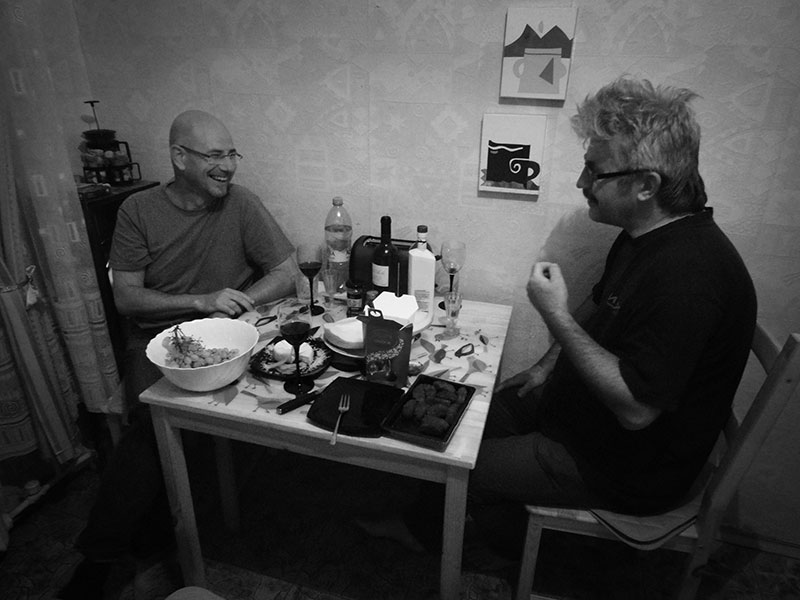
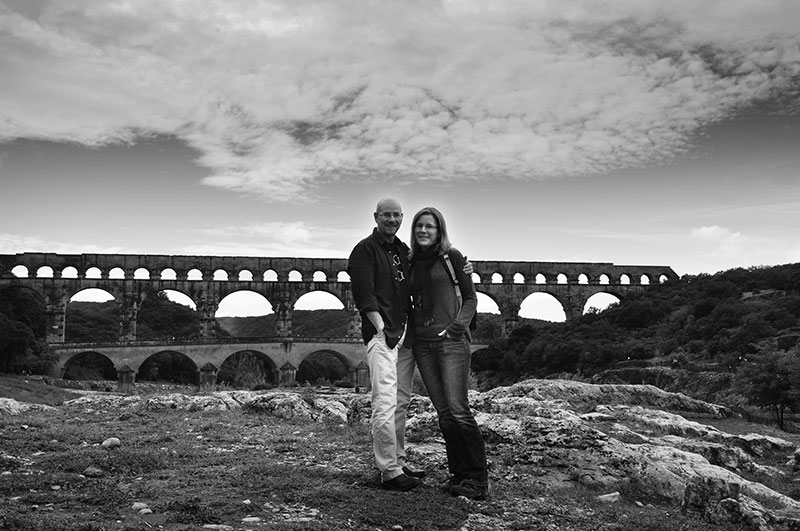
There are ‘magic moments’ when everything seems to fit. Moments that fulfil, inspire and give strength. Moments that confirm that the effort is worthwhile and that what you do is meaningful and valuable. Have you already experienced such moments in relation to your own activities?
I consider myself in the fortunate position of having experienced and still being able to experience many magical moments. There are different categories:
Magical moments triggered by nature or certain places
In December 1986, alone on top of the 5500-metre-high Popocatepetl (Mexico). To have made it, the view over the seemingly endless expanse of the globe. In February 1991 on a Polish freighter on its way to New York City, in the middle of the Atlantic Ocean, in the midst of a brutal hurricane, the ship pitching, rolling, groaning and moaning through inconceivably churning masses of water; the perception that it might be over with this life right now and the sudden awareness that this is absolutely okay, that I am ready, that I am doing exactly what I want to do and that there is nothing more I can do. In September 2013, looking at the Pont du Gard in the south of France. The place, the time, the overwhelmingly manifest beauty of the sight, utterly unexpected in its intensity. These are simply three of the more spectacular examples. But there are also such moments in the Ruggeller Riet, here in the mountains and time and again on journeys.
Magical moments in the arts
In my experience an inexhaustible source of magical moments are the arts – all the arts. Exhibitions, theatre, cinema, literature – and most of all music. That is the great advantage of music: music enters people so directly and immediately and is able to touch and move (me at least) so strongly that I have no chance of listing all these magical moments I have experienced. I have been listening to live music for over 40 years, ever since the Jazzclub Tangente in Eschen has existed – and not a single year has gone by that I have not experienced a magic moment at least once! I use the expression of an old Native Indian from the film ‘Little Big Man’ for this, namely ‘my heart sings for joy’. These are moments when music touches the innermost part of the soul and there is nothing more beautiful and deeper than exactly this music right now, in this moment – and I always say to myself then: man is also capable of this in his actions. Man can create the most devastating internal and external catastrophes, but he is also able to create this powerful meaningful art. I want to dedicate myself to this aspect of life! That is why I have devoted myself to the arts, that is why I do what I do.
The magical moments however do not only come from consuming art, they can also arise while making art myself. When I’m painting, when I’m working on a film or most likely when I’m making music, when I’m sitting in the rehearsal room with Denise and Marco and we just start playing and suddenly everything fits together and we create just for us subjectively perceived, great, deep, stirring music. It can happen that you come out of the rehearsal completely euphoric and just happy. Sometimes such moments also happen during performances, when I feel that the audience also enters into a wonderful resonance with the music.
Magical moments inside
Magical moments can also occur (almost) independently of external circumstances, when one is ‘kissed by the muse’, so to speak. When ideas and/or inspirations come to me out of the blue. This can happen in the middle of a work, when I suddenly see crystal clear how it could go on, or it can happen in the middle of the night that I wake up with great turmoil inside because a great idea, again felt subjectively, has just manifested itself. I can’t think about going back to sleep until I’ve written the idea down, or until I’ve internalised and memorised the idea so much that I know it’s in safe, retrievable territory.
In all these moments I realise that I have the right job, that life and work make sense, that it is worthwhile, even if, to use a cliché, you don’t become rich and famous in the process. To be fair however, it must also be said that in addition to the magical moments, there are also the downsides, the abysses into which one must look at times without wanting to.
Do you actively do something for it, so that such ‘magic’ moments can happen?
Well, of course you can’t really actively bring about magical moments, otherwise they wouldn’t be magical. But you can create certain conditions so that they can happen sooner. When creative processes or problem solving are on the agenda, I go to the outside area of my office or studio. I call the Ruggeller Riet part of my office. I’m out there practically every day. The ideas for my entire feature film were created in the Ruggeller Riet, so to speak. If I walk along like that and don’t ‘want’ too much, but just open up and let the thoughts and ideas flow, then magical moments can indeed arise. And sometimes it’s simply an encounter with an animal or the spectacular light of the rising sun and the cloud formations that I see from there in the ‘Kreuzberge’ mountains.
And since I regularly see and hear great concerts by great musicians in our great ‘Tangente’ (cultural venue) and like to go to the theatre and the cinema and to exhibitions often, the conditions, at least externally, are often there for potentially magical moments to occur.
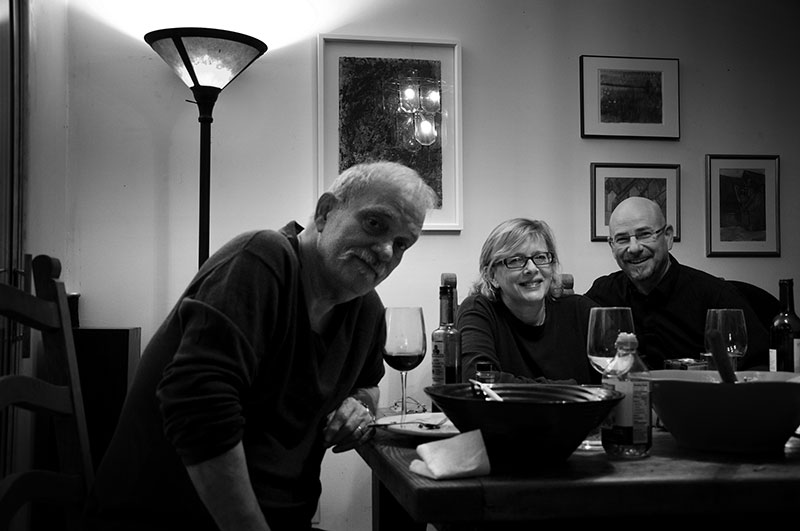
Are there moments when you doubt what you are doing?
Of course, as I mentioned earlier, there is also the other side of the coin. Moments when I question everything and threaten to fall into a black hole. I have learned to accept and endure such moments or periods as best I can and I try to remember that I have come out of every black hole so far. But often these moments have less to do with the artistic aspects of my work than with the economic and social ones. It’s simply that most people in artistic professions are grossly underpaid for what they do and give to society and that, as mentioned above, social recognition thus languishes at a correspondingly low level. We live in a society in which monetary values are pretty much the only parameter that determines a person’s social status. There has to be a little bit of something else as well, but when I think about how many brilliant musicians I’ve met and experienced who are barely making ends meet, and how many morons there are in this world and in this country who are passed on from one highly paid job to the next, it makes me wonder…
In retrospect, can you find something positive in difficult moments?
It is a truism that great difficulties also bring great opportunities. Of course when you overcome challenges you learn from them and acquire new skills. But the cliché that artists, for example, can only do good work if they also have to overcome great difficulties (usually meaning relative poverty) is complete nonsense.
Is there anything you would do differently in retrospect?
No, not obviously. It is also pointless to think about it. To a large extent I had the freedom to decide and I decided as I did in the respective situations.
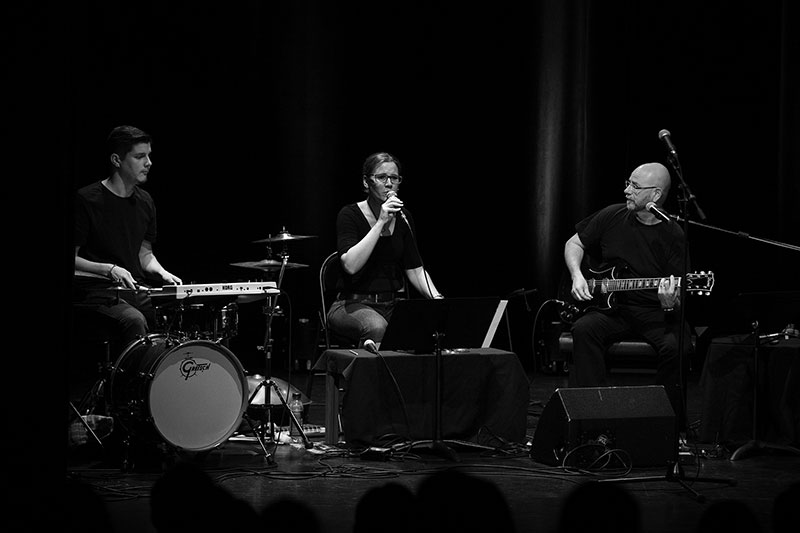
Do you want to contribute to society with your activities?
Of course! We are social beings to the deepest core of our being.
Is the recognition of other people or the public important to you?
Also of course, for exactly the same reason. Even if I am perhaps more of a loner and don’t ostensibly strive for it.
How well can you live from what you do professionally?
A difficult topic that inevitably keeps coming up again and again throughout my professional career. Yes I can make a living and I was aware from the beginning that it would be challenging. I am also very aware that I have been very lucky. I am quite stable healthwise and the premise of having my own house as a base camp for me and my family, and that in a country that is, at least so far, economically very stable and also safe, has contributed a lot to the fact that I can actually make a living from my professional activities. But there is one very important limitation: no financial security. No reserves, no pension fund, always from hand to mouth. When you’re young you don’t mind at all. But when you have the feeling that you want to live as an artist and start a family at the same time, then it becomes much more difficult. And when your colleagues around you start to take early retirement, then you realise that this possibility doesn’t exist for you, that there will hardly be anything available for a normal pension. Of course as an artist I don’t want to retire at all, but the idea of having to produce continuously and generate money for projects at the age of 80 is somewhat frightening. The alternative is to be supported by others, which I have tried to avoid all my life and with success, or to become a welfare case. So much for the economic reality and appreciation in many artistic professions. But as I said, I knew that from the beginning – and this extreme economic situation is fortunately counterbalanced by the inner fulfilment in my profession.
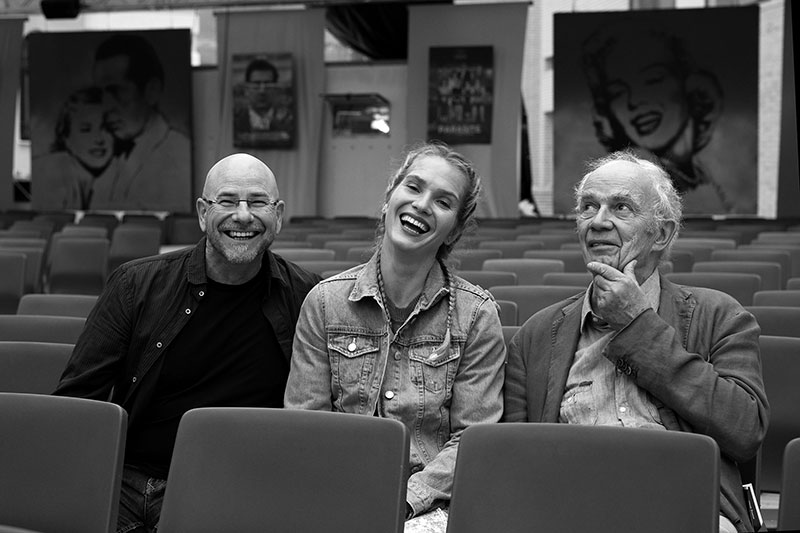
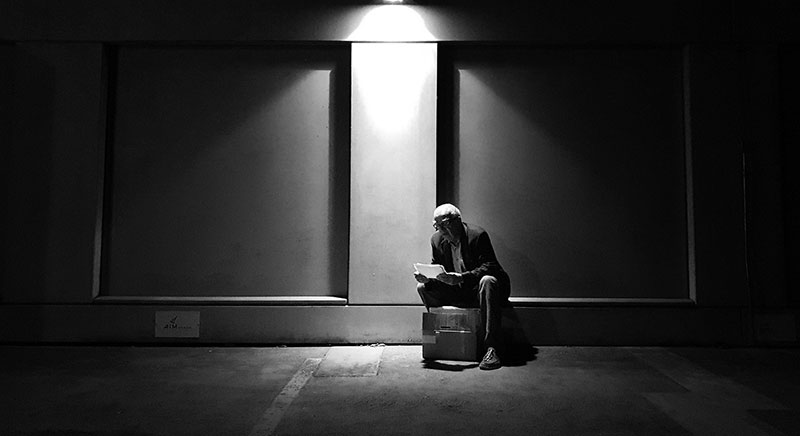
Is there something that is particularly occupying you at the moment?
Many things. It starts with fundamental human questions that arise again and again, through to questions of cultural policy and the current challenges posed by the Covid 19 pandemic, to the question of what I will do when I not only grow old, but also become frail or ill.
Is there something you would like to (increasingly) spend time on in the future?
The fundamental human questions will have to be answered again in the future. And professionally: My diverse, exciting projects will probably keep me busy enough until I drop dead.
What are you most grateful for in life?
For the dear people who have accompanied and continue to accompany me and for the opportunities and freedoms that life offers me in the time and places of my stay on this planet.
Interview
Laura Hilti, April 2021
Links
Artistic Overview: www.artnet.li/arno
Music Performances: www.klanglabor.li
Films: www.videowerk.li
Documentaries: www.abercrombiefilm.com, www.falufilm.com
Credits
Portrait photo: Eddy Risch
Christmas 1974: Hubert Oehri
Journey through Latin America 1987: Horst Schädler
A visit from home 1992: Ivo Elkuch
Martin Walch and Arno Oehri 1993: Anna Metelova
Shooting 2007: Tino Wohlwend
With Anatoly Vyatkinm 2013: Marina Vyatkina
Trio Klanglabor 2018: Tatjana Schnalzger
All other photos: Arno Oehri
This interview is part of the project ‘Magic Moments’ by Kunstverein Schichtwechsel, in which people are interviewed about their careers, activities and their magical as well as difficult moments.
Curated by Stefani Andersen and Laura Hilti, Kunstverein Schichtwechsel.
Supported by Kulturstiftung Liechtenstein and Stiftung Fürstl. Kommerzienrat Guido Feger.
>>> All interviews
